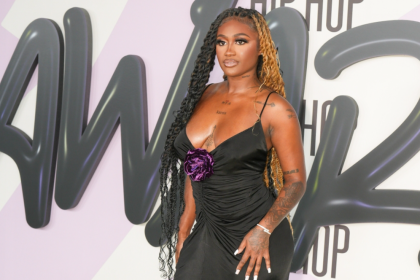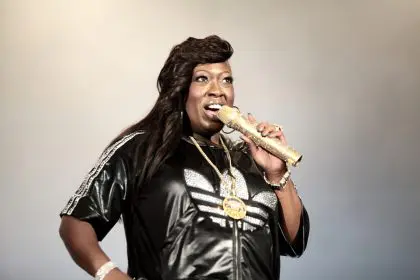Soulja Boy has been ordered to pay his former assistant more than $4 million in damages. The verdict comes after a lengthy civil trial that involved detailed testimonies from both parties.
The ‘Crank That’ hitmaker – whose real name is DeAndre Cortez Way – has been found liable for claims he assaulted, harassed and sexually battered an anonymous woman while she worked as his personal assistant, lived with him and embarked on a sometimes-consensual intimate relationship with him in 2019 and 2020. The case has drawn significant attention in the music industry, where workplace relationships have faced increasing scrutiny in recent years.
In a mixed decision after two days of deliberations, jurors found the 34-year-old rapper had put the woman in fear and subjected her to sexually offensive contact, gender violence and intentional infliction of emotional distress. The jury’s verdict represents one of the largest payouts in a personal assistant lawsuit against a music artist.
While they also ruled she suffered workplace harassment during 10 January and 20 July 2019, the jury found Soulja did not falsely imprison the woman. Legal experts note that this partial rejection of claims is common in complex civil cases involving multiple allegations.
According to Rolling Stone, the rapper appeared to have a slight smile when the woman was awarded $760,000 for her assault claim, but his expression “dropped” when the jury awarded $1.5 million for sexual battery, and fell even further when the clerk announced the jurors also decided he should face punitive damages too, of an amount yet to be determined. The courtroom was reportedly packed with media representatives and industry observers during the verdict reading.
During the trial, the woman’s lawyer claimed she deserved $73.6 million in past and future damages as he painted Soulja Boy as a brutal boss who regularly raped and beat his client. This amount would have been among the largest civil judgments ever awarded in a case involving a celebrity employer.
“He raped her, he punched her, he kicked her, he cut her. He picked up and then slammed her, choked her, left bruises from squeezing her arm. He grabbed her head by a mirror and said, ‘No one will love you,'” Ronald Zambrano told the court. The graphic testimony led to several emotional moments during the proceedings.
“He pointed a Draco gun at her. He locked her in a room, threatened her family, threatened her, denied her food.” The allegations detailed a pattern of behavior spanning several months and occurring at multiple locations, according to court documents.
Soulja Boy‘s lawyers argued he had been a victim of an ex-girlfriend who created a “false story” for money. Their defense strategy focused on undermining the credibility of the plaintiff and suggesting financial motivation for the allegations.
“Plaintiff is motivated by jealousy, revenge and financial gain. She wanted to be paid. That’s what this case is all about. It’s not about the truth, it’s just not,” lead lawyer Rickey Ivie said. The defense team presented evidence to support their claims of a consensual relationship.
During the four-week civil trial, the woman claimed she “feared” for her life and the ‘Squid Game’ rapper had told her he knew where her mother lived and threatened to “send shooters” there. Security experts testified about the psychological impact of such threats on victims of workplace harassment.
“I was scared of what he would do to my family. I didn’t want him to hurt anybody because of me,” she added. Her testimony included detailed accounts of multiple incidents that the jury ultimately found credible enough to award substantial damages.
The rapper denied ever abusing the woman, claiming they had “bonded” and always acted voluntarily. Throughout the trial, he maintained that their relationship was consensual and that any conflicts were typical relationship disagreements rather than workplace harassment.
He insisted the woman did errands for him because he had offered her a free place to live and they embarked on a personal relationship, not because she was a paid employee. Employment law experts who observed the case noted that the blurred lines between personal and professional relationships often complicate such legal proceedings.
The case highlights ongoing concerns about power dynamics in entertainment industry employment relationships, with advocacy groups pointing to this verdict as a significant precedent for future workplace harassment claims in the music business.















